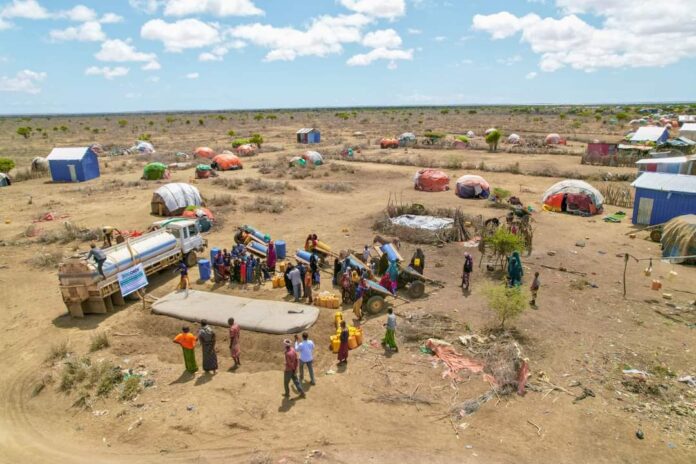NAIROBI (Kaab TV) – As climate change continues to displace millions across Africa, Amnesty International calls on wealthier nations to commit to full financial support at the COP29 climate conference in Baku, Azerbaijan.
These countries, most responsible for driving global warming, must provide the necessary funds to address the catastrophic impacts of climate change on African communities, including the loss of homes and livelihoods.
This support is critical not only for compensating these losses but also for funding adaptation initiatives by African governments to prevent further forced displacement and human rights abuses, while facilitating a rapid and fair transition away from fossil fuels.
To fulfill their pledges, richer countries must urgently contribute to the Loss and Damage Fund, the main global fund designated to tackle the irreversible harm caused by climate change.
Sub-Saharan Africa
To date, contributions total under USD 700 million—a fraction of the USD 400 billion required by 2030 according to estimates from low-income nations.
In sub-Saharan Africa alone, climate adaptation is expected to cost USD 30–50 billion annually.
Amnesty urges international financial institutions to ensure funds are distributed equitably, prioritizing those African countries most affected.
“African communities, who have contributed the least to climate change, are bearing its worst consequences, from Somalia to Senegal and Chad to Madagascar. Wealthier nations must step up and enable African countries to withstand this crisis,” said Samira Daoud, Amnesty International’s Regional Director for West and Central Africa.
Climate Change’s Toll Across Africa including Somalia
Amnesty International’s research reveals that climate impacts are displacing people within and beyond borders throughout Africa, often resulting in severe human rights violations. These include the loss of shelter, disruptions to food, healthcare, and education access, and increased risks of gender-based violence.
In Somalia, protracted droughts and floods have displaced over a million people, pushing communities weakened by decades of civil conflict into internally displaced persons (IDP) camps or forcing them to seek refuge in Kenya and Ethiopia.
Coastal communities in Senegal face rising sea levels that have destroyed villages, pushing people inland with inadequate support.
Similarly, Chad’s rising temperatures have intensified resource conflicts between herders and farmers, escalating violence in the absence of effective conflict management.
Meanwhile, Madagascar’s prolonged drought has forced tens of thousands from their ancestral lands, leading to widespread hardship as they struggle to secure food, water, and healthcare.
Southern African nations like Angola and Namibia are grappling with extreme drought, forcing women and children to migrate in search of food, only to face risks of trafficking, gender-based violence, and disrupted education. Namibia has declared a drought state of emergency, along with Lesotho, Malawi, Zambia, and Zimbabwe—countries all severely underfunded to manage the crisis.
“The most severe impacts of climate change are already being felt across Africa, where extreme weather events are decimating livelihoods and driving displacement. Governments simply don’t have the resources to address these crises on their own. The countries responsible for climate change must bear the financial burden of this response,” said Tigere Chagutah, Amnesty International’s Regional Director for East and Southern Africa.
Equitable Financing Is Essential
The rights group states that securing and disbursing the necessary funds is only the first step.
To be effective, Amnesty says, the Loss and Damage Fund must ensure equitable access for affected African communities.
Debt relief must also be on the table, allowing African nations to redirect funds toward climate adaptation and human rights protections.
Currently, countries like Ethiopia spend more on debt repayments than on climate adaptation, with nations from Congo to Mozambique in similar situations.
“Given the scale of climate-induced displacement and associated human rights abuses across Africa, half-measures from wealthier nations won’t suffice. COP29 must deliver full and fair funding commitments for loss and damage, enabling African nations to protect their people and adapt to a changing climate. Africa cannot wait any longer,” Chagutah concluded.


